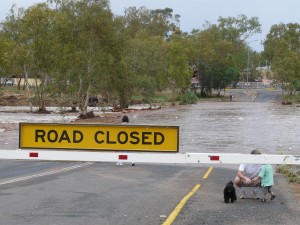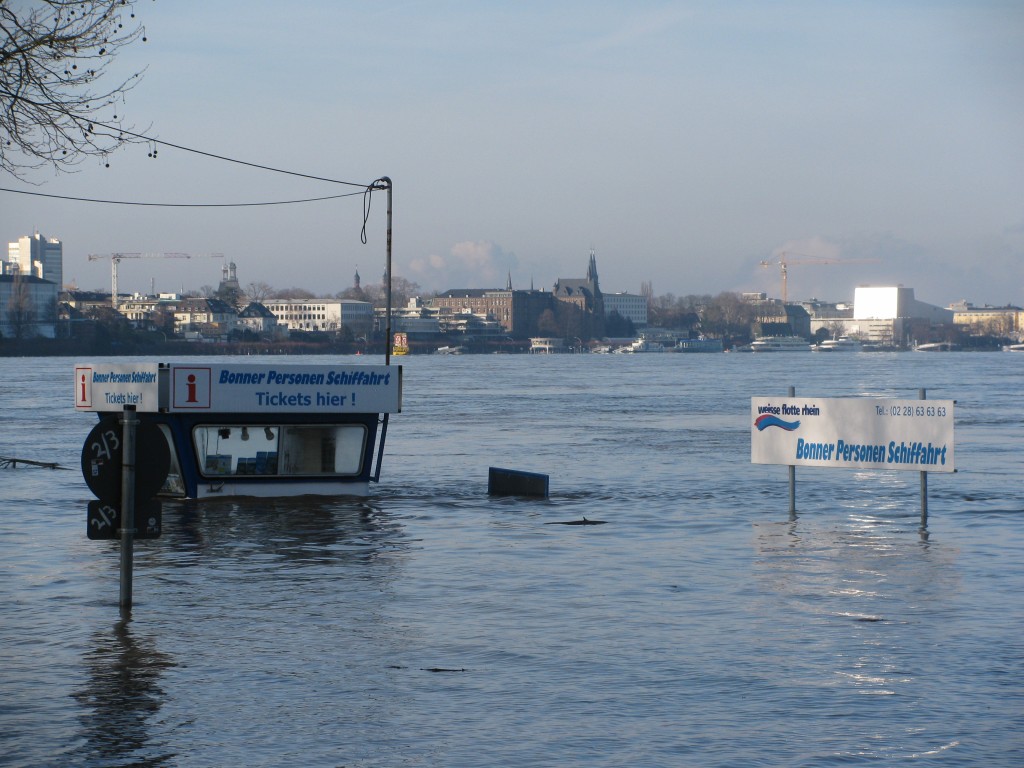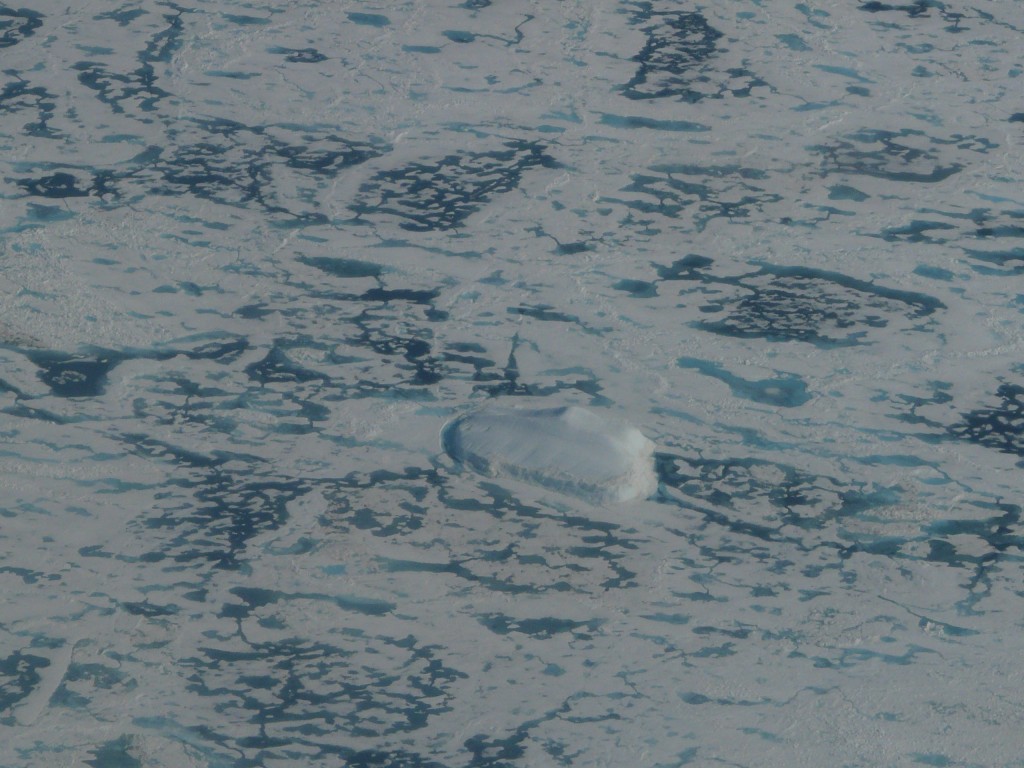Search Results for Tag: weather
Evidence indicates link between weather extremes and global warming
Some ice blog readers have asked about the evidence that climate change is responsible for the increase in extreme weather events as discussed in the last post. This is something which is discussed a lot both by scientists and the general public. After all, it’s hard to find a more talked-about subject than the weather. Just this weekend, the Potsdam Institute for Climate Impact Research has just published a study in the journal Nature Climate Change on this very topic. The scientists say the last decade was a record in terms of extreme weather and that the increase was “very likely” caused by human-made global warming. They say there is now strong evidence for linking heatwaves and extreme rainfall to the human influence on climate. The evidence is less conclusive for other types of extreme weather like storms, but the scientists say observed trends and basic physics suggest it is plausible to expect an increase there too.
The study looks at extreme weather across the globe, including record rainfall events in Japan, record drought in the Chinese Yangtse basin, the hottest ever summer in western Russia (2010) and numerous extreme weather events in the USA.
The study is based on physics, analysis of statistics and computer simulations. The scientists say basic physics make it likely that a warming of the atmosphere will lead to more extremes. For instance warm air can hold more moisture until it suddenly falls as heavy rain. The statistics show clear trends in temperature and precipitation data. Last but not least, complex computer models confirm the link between warming and record temperatures and rainfall. Now that’s a fair bit of evidence to be going on with, don’t you think?
Extreme weather on the increase

Experts say climate change is increasing the likelihood of extreme weather events. This shows flooding in Central Australia, 2008
Today is World Meteorological Day. An appropriate date to consider some of the findings reported at the Extreme Weather Congress which has been taking place in Hamburg over the last few days. Paul Becker, the President of Germany’s weather service, said extreme weather events here had more than tripled since the 1970s. Professor Peter Höppe from the German reinsurance group Munich Re explained how changes in the atmosphere played a role in bringing about this increase. And Professor Mojib Latif from the Helmholtz Centre for Ocean Research in Kiel told the conference climate change would continue, as current efforts to reduce CO2 emissions are insufficient. The 2° goal, he said, was only still possible in theory. Experts are calling for better preparedness for severe weather. I’d like to give you some links to English-language coverage of the conference findings, but there seems to be a shortage. German media have given some attention to the conference reporting the rising number of extreme weather events here, but not masses. Here’s hoping we’re not all getting so used to all this that people lose interest in reducing emissions and helping to stabilise the climate. Clearly, the impact hits developing countries harder. But we don’t need to wait for the next catastrophe before tackling the risks.
Arctic Ice and our Weather
Apologies for a long spell of ice-blog silence, but your ice blogger is now back on the
(snow?-) ball.
The German papers today tell us to expect temperatures dropping to as low as MINUS 20 C in the course of this week. After a relatively mild winter so far, this will be a shock to the system for a lot of people. And of course, we’ll be back to the old discussion about how it can be this cold when the world is warming… Somehow people are more willing to accept that the climate is changing when the plants are all starting to come up ahead of time. But maybe the cold snap will help draw attention to a new study by Germany’s Alfred-Wegener Institute explaining the connection between the extent of the Arctic sea ice in summer and our winter weather in central Europe.
![]() read more
read more
“When the snow lay round about” – because of global warming?

Snow on trees – beautiful, if you ask me, and appropriate weather for this time of year. Of course not everybody sees it that way. Most of the people supposedly always “Dreamin’ of a white Christmas…” have been whinging non-stop since the snow started, admittedly a good bit ahead of the feast itself.
And then, yes, off we went. They’re at it again. Newspapers, people on the (much delayed) train, friends on the telephone… the same old story… “so much for climate change. Do you know how much snow is on my doorstep…?”
Well I was in a way relieved to know that George Monbiot has been encountering the same problem – and has a suitable explanation to hand. Let me direct you to “That snow outside is what global warming looks like” in a recent edition of the Guardian.
“The cold has reason in a deathly grip” – does that sound a bit drastic?
Climate change – bad for your health?

As the negotiations kick off in Cancun (and the opening speeches seem to repeat the message of low expectations and going for partial compromises discussed in the last blog), I’m looking at this flyer, lying on my desk . The possible impact of climate change and extreme weather events caused by climate change on health is an “in” topic in Bonn this week. The German Environment Ministry, Federal Environment agency, German Meterological Office DWD and the European Office of the WHO are holding a joint two-day symposium. I went to the opening press conference at the Ministry yesterday. There’s more information on the background and the issue of health implications here:
Extreme weather events require precautions and adaptation
Tonight I am chairing a panel discussion here at Deutsche Welle on the same topic, that\’s why the flyer is on my desk. The floods in Pakistan this year and the fires in Russia are amongst the examples being discussed of the type of extreme weather events and disasters likely to be on the increase with a changing climate. Obviously, they have an impact on human health. The spread of diseases to areas where they haven’t been prevalent before, like Dengue fever in Europe, will also be on the agenda.
The discussion is the eighth in a series called the Bonn Dialogues. The city of Bonn is active in the network of cities working to combat climate change. It’s also of course the home of the UNFCCC, now busy in Cancun. And it houses the United Nations University UNU-EHS, the IHDP, International human dimensions programme on global environment change, and the DKKV, that’s the German catastrophe prevention organisation, who are organising the conference. I’ll be interested to hear what our panelists have to say. I’ll keep you posted.






















Feedback